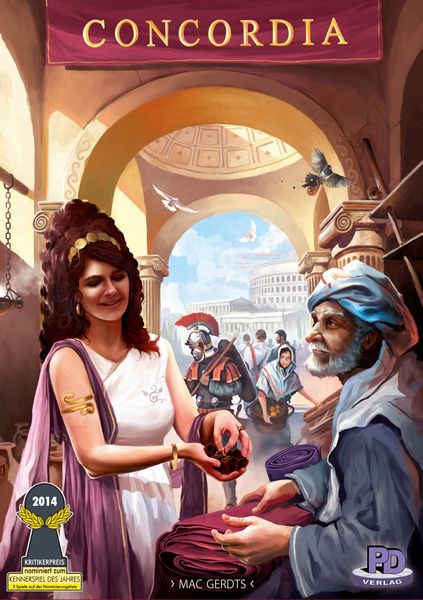Concordia (2013) Board Game
Concordia is a strategy board game designed by Mac Gerdts and released in in 2013. The game is set in the ancient Roman Empire and players take on the roles of Roman merchants seeking to establish trade routes and build settlements across the land. The game has received critical acclaim for its elegant gameplay mechanics and strategic depth.
Game Components of Concordia
How To Setup Concordia
To set up Concordia, players begin by choosing a map, which can be either side of the board, offering different starting conditions. Each player receives a starting hand of seven cards and 15 colonist tokens. The personality decks are prepared based on the number of players, and the reference cards are placed within reach. The game ends when either the communal supply of cards or a player’s supply of houses is depleted.
Gameplay Mechanics and Game Objective
The objective is to build the most successful trading empire by managing resources efficiently, expanding to new cities, and appeasing the gods for favorable scoring.
Player Experience
Concordia offers a deep and engaging experience with a balance of strategy and luck. Players must carefully plan their actions, manage resources, and keep track of their opponents’ moves to stay ahead. The game’s replayability is high due to the random card draws and variable board layouts, ensuring a unique experience each time.
Pros
Cons
Personal Thoughts on Concordia
Concordia is ideal for fans of economic strategy and civilization-building games. It suits players who enjoy deep, strategic gameplay with high replayability. The game’s balance of luck and strategy makes it appealing to both casual and hardcore gamers, though it may not be the best fit for those seeking quick or solo gaming experiences. With its elegant design and engaging mechanics, Concordia is a great addition to any board game collection for those who appreciate the intricacies of economic and resource management.
We are supported by our audience. When you purchase through links on our site, we may earn an affiliate commission, at no extra cost for you. Learn more.

